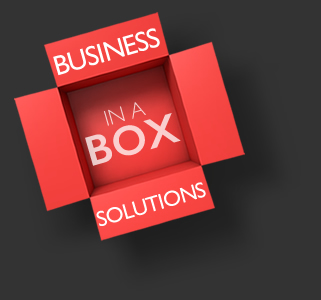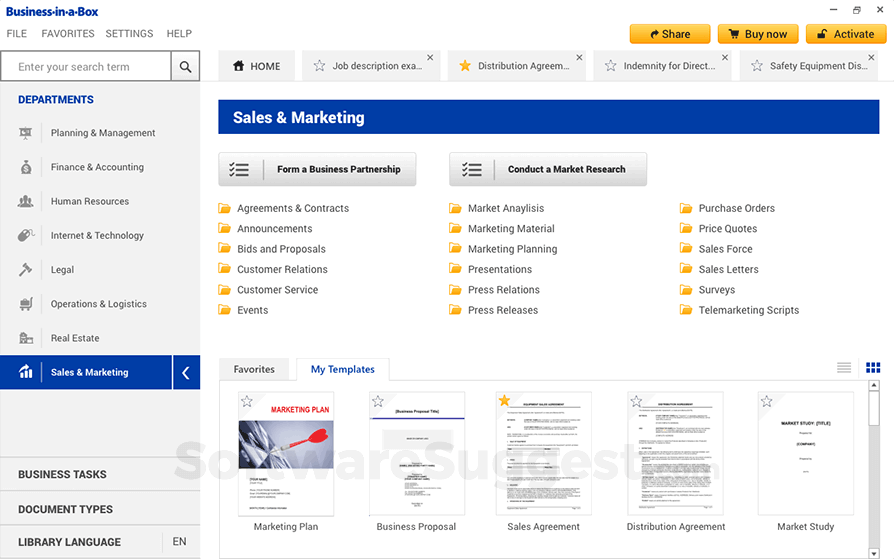
- A business' structure has tax implications for the owners and/or partners. Consequently, you must give careful thought to the structure selected. If you're starting a business that provides a professional service, you could consider both a professional association (PA) or a limited liability company (LLC).
- Box is a popular cloud-based content management system (CMS) that lets users share, store, and manage documents, presentations, and videos from anywhere, at any time. The solution suits businesses of all sizes from different industries.
Do you dream of being your own boss? Would you rather be accountable to yourself than a hierarchy of managers? Are you tired of someone else dictating how you spend your days? If you’re itching to get out on your own, then you might be ready to become one of the 10 million self-employed people in the U.S.
Business In A Box Key
If your goal is self-employment, buying a franchise can be a great way to jumpstart your own business. However, a franchise is probably not a good choice for someone who wants the flexibility to “do their own thing.” A franchise is like a business in a box, with all of the rules and regulations clearly spelled out in the Franchise Disclosure Document.
On the other hand, if your goal is to own your business without having to start from scratch and you like the idea of a well-defined structure already in place, then a franchise might be the way to go. Below we offer four benefits to buying a franchise vs. starting a business from scratch:
AT&T Business in a Box® includes an integrated Wi-Fi access point supporting 802.11 b/g that can be enabled for use. This feature can be configured by you to your specifications utilizing this guide. Save over $3,000 a year with the new Business in a Box. Call Cable Bahamas Business Solutions at 601-8911 to sign up your business!
- The support is set
Buying a franchise means getting a support system from day one. If you’re someone who likes to have a mentor to guide you through unfamiliar territory, then buying a franchise is probably the way to go. A franchise also gives you people to call on when you have a problem, rather than you being left to your own devices to figure something out, whether that’s choosing a vendor, dealing with payroll, or some other inevitable hassle that comes with running a business. With a franchise, you’ll know someone’s got your back. Going it alone? Well, you’re alone. - The mistakes are made
Buying into a proven franchise saves you from making all of those newbie mistakes. The franchisor has already made them, and worked out most (if not all) of the bugs of the business. That saves you countless dollars and hours in barking up the wrong trees while figuring things out. Plus it means you can focus solely on getting customers—and you’ll know from the very start which customers to target. - The brand is built
With a franchise, you don’t have to build a brand. It’s built! Think about it: You not only get an existing look and logo, but even brand recognition too. Do you know how long it takes to achieve that kind of brand familiarity when you start from scratch…and how much money? Then there’s the time and cost involved in coming up with a brand in the first place, including the logo and the messaging. Add to that the expense of building a website, trying to get followers on Facebook, figuring out what other marketing materials you’ll need to invest in, and more. A franchise is literally a business in a box, making all of these tools—and best practices for using them—yours from the very start. - The processes are in place
What’s the best way to use payroll software? How can you most efficiently process invoices? What’s the best way to tackle a project? How do you estimate jobs? What do your employees need to know how to do? How do you manage quality control? These are just a few of the hundreds of questions you’ll have to figure out for yourself if you decide to start a business from scratch. Invest in a business in a box like a franchise, however, and you can skip all of this homework and get straight to work.
No, you won’t have complete freedom to do whatever you want as a franchisee, although that’s for your benefit as well as the benefit of the franchisor and other franchisees. If it’s complete freedom you want, then a franchise might not be the best route to self-employment for you.
However, if your primary goal is self-employment (not to build a better mousetrap), and you’d rather focus on building a business rather than starting from scratch, then the franchise as “business in a box” might be perfect for you. Now, the next question is, what kind of franchise…?
The Franchisor: Your Friend, not Your Foe
The franchisor isn’t there to keep you from running your business, rather to help you run your business better, cheaper, faster. The franchisor has worked out the bugs of the business and has your best interests at heart! Read more…
FSMA Rule Number Seven Means More Fleet Washing Needed
Later this year, new rules go into effect regarding the sanitary transportation of human and animal food. Those rules are going to require cleaner trucks, along with proof of cleaning. That means we’re poised to see an increased demand for the kind of documented, high-quality fleet cleaning we provide. Should yours be one of the franchises that benefits? Read more…
The concept of “two-in-a-box” leadership has been examined extensively over the past few years. One of the most thorough discussions is in the HBR article The Leadership Team: Complementary Strengths or Conflicting Agendas. CEO/COO teams or “Office of the President” arrangements can offer great strengths, but may also introduce some sizeable risks, as Stephen A. Miles and Michael D. Watkins conclude.
In our own company, Fishbowl, we took the approach to a new level 2 ½ years ago. We create leadership teams not only for our top jobs, but for every management position in the company.
A bit of background: Fishbowl is the result of a somewhat rocky beginning. We became involved with the company, which produces inventory software, in 2004 when one of us (David) was sent by the prior majority investor to shut the fledgling company down. Instead, seeing the potential in the product and commitment of employees, we came up with financing to buy out the investor and keep the company operating. By the end of 2006 we had created the #1 most requested inventory software for use with QuickBooks and were solidly profitable.
After several years of solid operations, in January of 2010 we decided to put together pairs of people for all management jobs. We did this for several reasons: We knew that maintaining our exceptionally high growth rate would be increasingly difficult and wanted to prepare leaders from within to address those new challenges. We wanted to put our highest focus on the development of our people, and to cultivate their highest creativity and thinking, in addition to our focus on the development of our product and sales.
A lot of people thought we were crazy. Soon after we made the move, the economy was deep into the recession, and most companies had to reduce headcount to cut costs. Instead, we were adding managers and creating intentional redundancies. How could we justify it?
In fact, in our experience, the benefits of our approach have exceeded the not inconsequential costs. Here are just a few of the upsides:
Business In A Box Vs Others
•No hierarchy. We’ve flattened everything out. Every person is a leader, paired with another and supported by a team.
•Personal growth. We’ve allowed twice as many people to have leadership opportunities – an inherent succession plan that has resulted in strong employee growth in addition to company and revenue growth.


Business In A Box Software
•More creative outcomes. We’ve chosen our pairs carefully – we align paired leaders for maximum contrast in thinking and analytical styles. For example, our product management leads include one partner who is “left brained” and one who is “right brain” dominant. One is linear in his style; the other creative. The result is a manifestation of true synergy.
Are there disadvantages to paired leadership? In the initial stages, yes:
•Tapping two people to fulfill one role requires a lot of resources. There’s no question our payroll is higher because of our paired leadership strategy. However, in our experience the creativity and testing that goes into every program or key decision creates a net savings over the longer term.
•Some of the individuals who get paired don’t particularly like each other. We had an instance like this. We have a culture where people are very open (though not disrespectful). Two of the key individuals we partnered cornered us with persistent questions. What if we can’t agree? Who arbitrates? What if one partner is holding the other one back? Ultimately, they adapted. At present, it’s fair to say that if we changed the model, the majority of our team would be extremely disappointed, because they’ve come to appreciate the shared responsibility model.
Business In The Box
•What about succession when the time comes that one of the teamed partners is promoted and the other is not, or one of the team members is gone? In our own company we have created a culture that is vastly different than the typical corporate environment. Our turnover is near zero. But when a leader does find his or her place elsewhere, we still have a leader in place. We can develop and assign a new partner and we generally don’t miss a beat.
One of the greatest benefits of paired leadership that Fishbowl enjoys is that a trusted partner can provide essential feedback that helps to keep egos and guesswork in check.
Business In A Box Forms
We also believe that what we call the The Five Non-Negotiables must be present for a paired leadership program to work: Respect, belief, trust, loyalty, and commitment. We test all decisions against these characteristics. Paired leadership is so fundamental to our management style we would never consider going back. Two really good leaders – together – produce great outcomes consistently. Our company is thriving, and we have personally fulfilled employees who produce out-of-the-box initiatives every month. Perhaps it could work for your business as well. We welcome your thoughts.